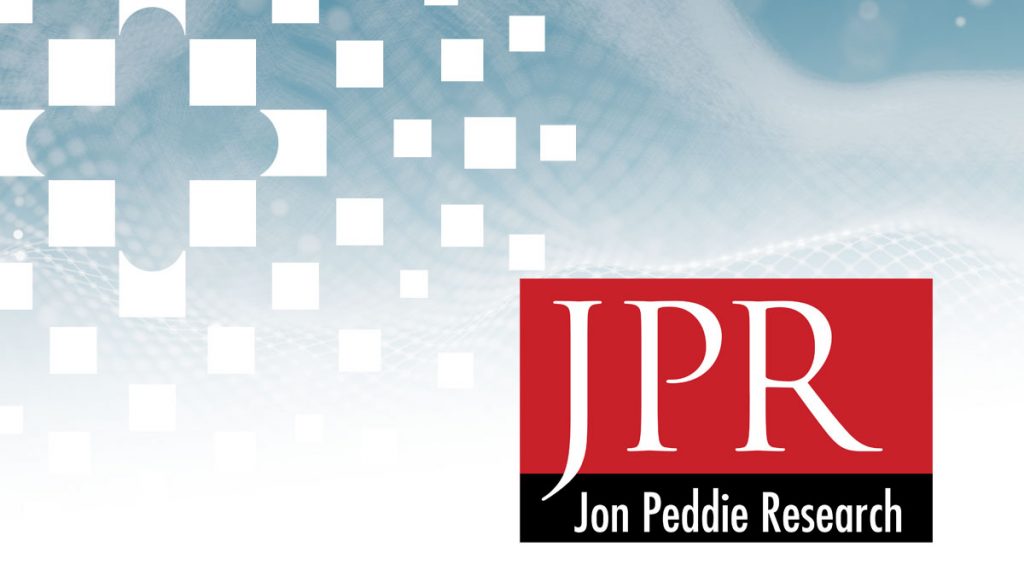PTC is offering a free Remote Assistance with Augmented Reality to Help Manufacturers During the COVID19 Crisis
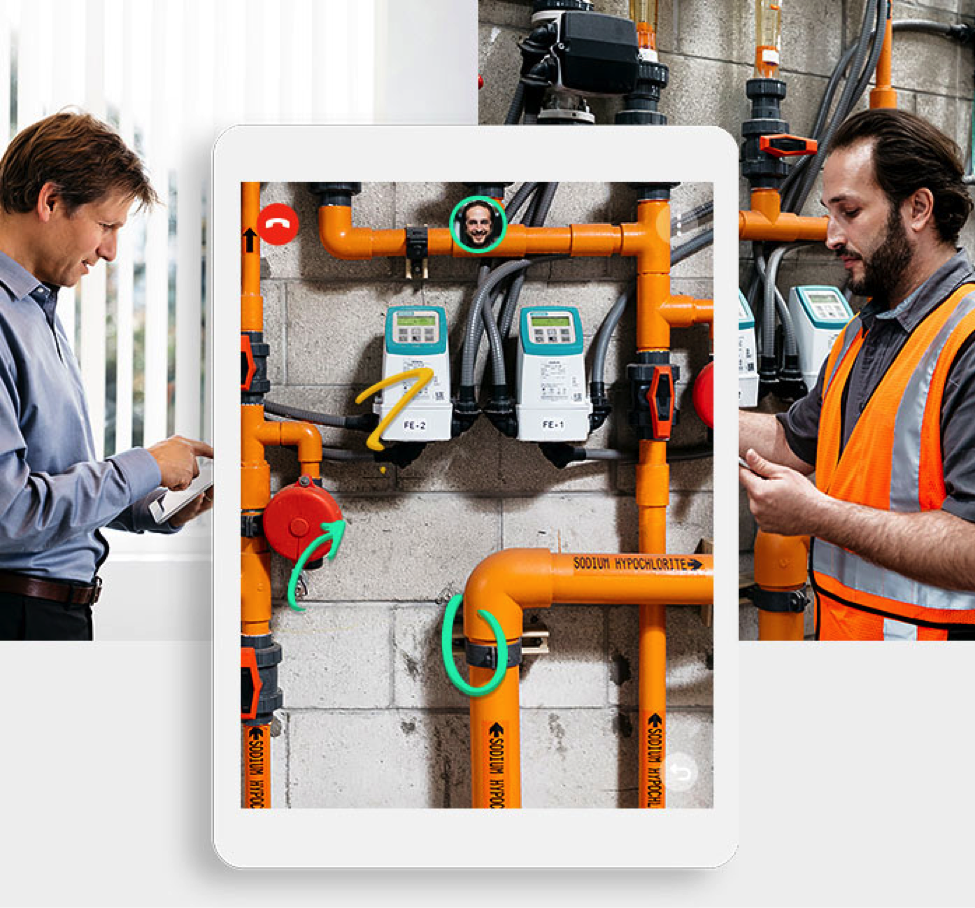
The Coronavirus, COVID-19, has forced many of us, maybe most of us to work at home. For many workers, even some working in the tech industry, performing specific tasks at home can be difficult or require a special set up. People are having to learn how to work at home, telecommunicate, and collaborate. Web-based conference calls, and just one-to-one phone calls maybe with video have taken on new importance, and new ways of working are materializing.
The government health organizations for the workplace, including the World Health Organization and the U.S. Centers for Disease Control and Prevention have recommended to maintain social distance from fellow employees.
Adapting to a new way of working remotely can be challenging for industrial companies, many of which have globally-distributed employee populations, supply chains, and customer bases. The challenge can be especially acute when special expertise is needed to carry out specific on-site tasks—such as operating or repairing complex machinery.
Some people still must go to work. Maintenance people, for example. People are needed to build and maintain emergency structures such as tents and portable distribution sheds for overloaded hospitals and expanded warehouse and delivery systems. Skilled workers are always in short supply and in response to government directives businesses and organizations have to limit the number of people who work onsite. Skilled workers are available, but few are trained in the nuances and intricacies of every possible product, system, or design.
In addition, support systems and manufacturing lines are under an unusual demand to produce larger quantities of emergencies supplies. The supply chain is also being taxed, and the infrastructures for all of them are being stressed. Also, the pop-up facilities need experts to advise on how to assemble, use, and protect them—but we just don’t have enough experts to be everywhere needed.
The solution is simple, put an expert on the phone with the field person. It’s an idea that has been used for over a decade in the medical field. Telemedicine has been a life saver for rural areas and places devastated by storms and other calamities. The model is expanding and so is the demand for remote experts who can lead the people in the field through all the steps for all the jobs that need to be done.
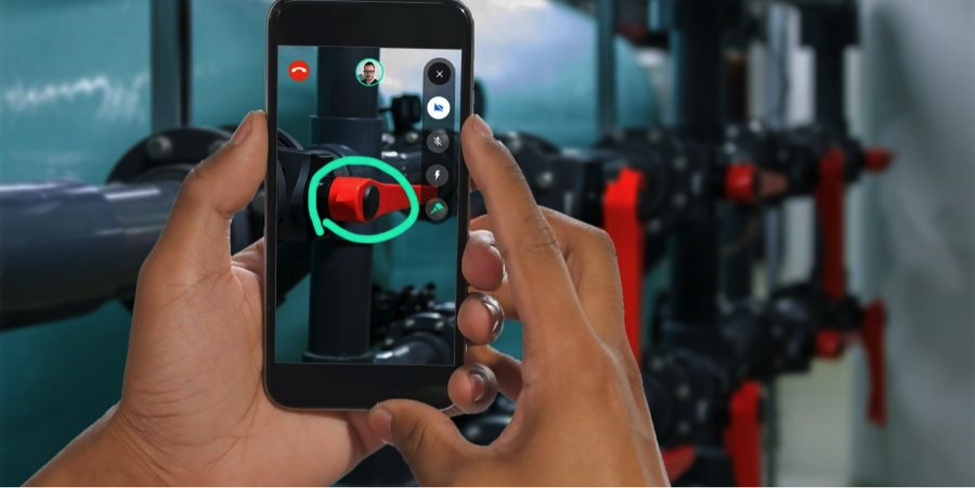
Remote expert assistance showing exactly what part to use.
Using augmented reality can, and does, help. Allowing the remote expert to see what the on-the-spot field worker is seeing, and then being able to advise that worker gets a better, more accurate result faster and more efficiently, and frees up the expert for other workers who need an assist.
Remote Assistance with Augmented Reality (RAAR)
Remote Assistance with Augmented Reality (RAAR) enables technicians and experts to work together, while physically separated, allowing them to solve problems faster and more effectively.
RAAR systems ensure knowledge transfer and collaboration to keep processes running in times of crisis like these. They make it possible to provide expert assistance without travel, reduce machine downtime, and meet social distancing recommended and mandated by government agencies across the world.
Imagine a production plant making surgical masks or test kits, and it goes down. Sending in a team of experts in a timely manner immediately starts to run up the costs—and those experts are off-line while they’re traveling to the failure point. With RAAR, one can meet that demand with a local service technician who can provide a quick response, getting the production up and running again.
Registered users, technicians, and experts can communicate directly with each other. And, if they can’t resolve the problem it can be up-leveled for further support—without travel, delays, or bureaucratic interference.
PTC is Offering Free Use of Chalk Amid the COVID-19 Crisis
Such systems exist and are in use, but they cost money. One company that has a solution for this challenge is PTC. Considering the current environment, PTC is offering to help.
The company developed a RAAR in late 2017, and has refined and improved its tools continuously since. PTC’s Chalk RAAR enables communication experience through the Vuforia AR Platform and Apple’s ARKit technology (introduced with iOS11). It allows people in different locations to share a live view of the same environment, and draw simple annotations called Chalk Marks. Chalk Marks appear anchored to objects and surfaces in the environment, as if drawn on the objects and surfaces themselves.
You’re never alone when you have Chalk—an expert in your pocket
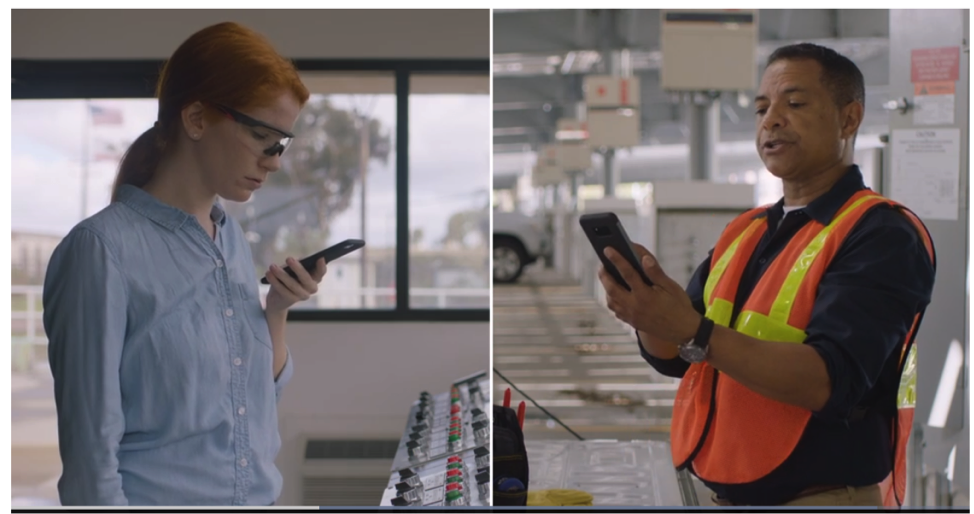
Bi-directional real-time communications with annotation is the key to a RAAR system
Both people can draw on the screen so they both can be looking at the same problem. They are truly working together even though they aren’t in the same space. There’s a good video of how it works here.
Until June 30th, and longer if the crisis dictates, PTC will be offering Chalk for free, with no obligations. PTC hopes this small gesture will help companies continue to deliver critical expertise to remote service technicians and customers, even as the world around us shifts to make connecting in person more difficult.
An Easy-to-Use App with Sophisticated Technology Underpinning
A RAAR is a deceptively simple system to use even though it is built on an amazingly complex software program that utilizes the many features of a smartphone or tablet. For example, it knows where the technician is, where the device is, capture the image from the camera, and transmit the image. Then the expert either reads the markup made by the tech, or makes a markup for the tech, and all that has to be retransmitted. Keeping the markup associated with the item in question, keeping it attached, so to speak, is also not trivial. And all that happens in the blink of the eye so it feels as if the other person is standing right beside or behind you. In addition to the markup and location data, voice communications goes on simultaneously, and all of the activities, video and audio can me recorded and used as training material for the next person. Thus, a RAAR has a multiplier factor to it—write once, read many.
Vuforia Chalk
PTC’s remote assistance product, Vuforia Chalk, leverages augmented reality to enable offsite and on-site employees for the collaborative operation, maintenance, and repair of products of all kinds. It’s like a more powerful Facetime for industrial settings and it’s as easy to set up and use.
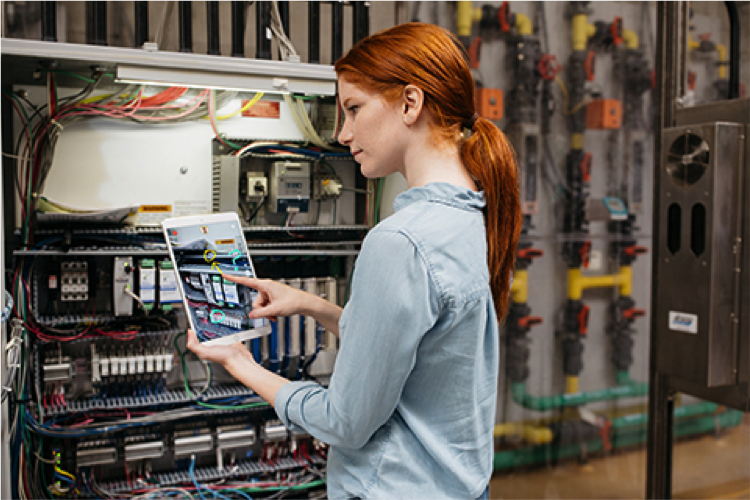
You can get a free copy of it here.
Jon Peddie
President and Founder, Jon Peddie Research
Appendix
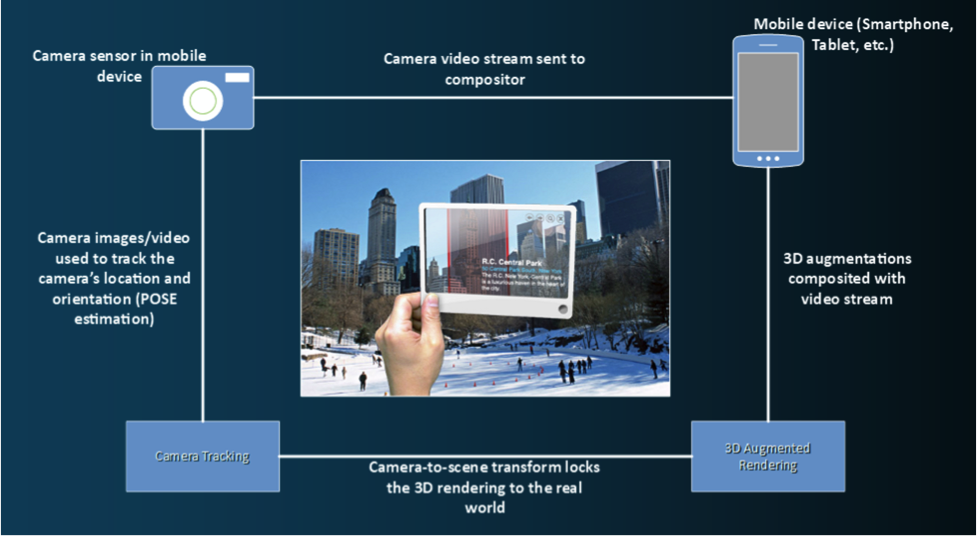
Basic concept of AR. RAAR adds bi-directional interactivity with geometric and geospacer locking

